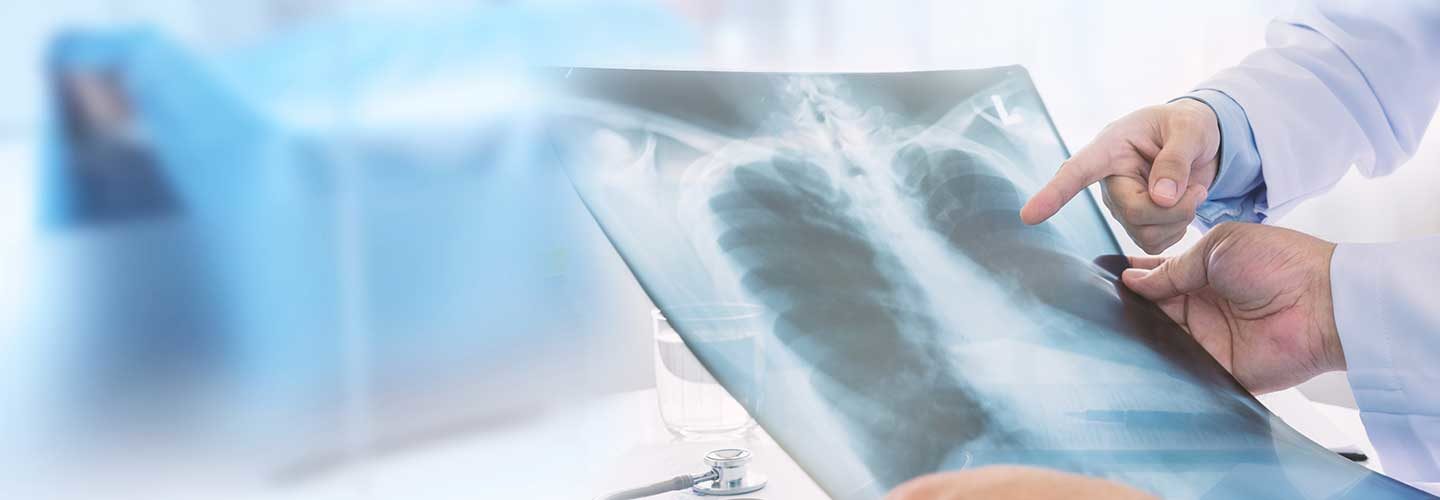Advanced diagnostics and treatments of respiratory disorders
Most illnesses that impact our breathing and lung function are short-lived and resolve with little to no medical intervention. But if your cough, shortness of breath, or wheezing do not improve, it’s important to have advanced pulmonary expertise nearby. The Division of Pulmonary Medicine at Maimonides delivers outstanding inpatient and outpatient services to diagnose and treat a wide range of respiratory diseases and sleep disorders.
Our goal is to improve and maintain lung health by using a collaborative team approach and individualized treatment plans focused on you.
Breathe easier. Call us at (718) 283-8380 to make an appointment.

For pediatric pulmonary conditions, the Maimonides team at the Children’s Hospital features specialists trained to treat children’s unique respiratory issues
Common respiratory diseases or symptoms we treat
We treat a wide range of pulmonary conditions, including many not listed here. Call (718) 283-8380 to speak to our expert team about your symptoms and how we can help.
- Asthma
- Bronchitis
- Chronic Obstructive Pulmonary Disease (COPD)
- Emphysema
- Lung Cancer
- Pneumonia
- Pulmonary fibrosis
- Pulmonary hypertension
- Tuberculosis
- Cough
- Wheezing
- Shortness of breath
- Sleep apnea
- Abnormal chest x-rays
Pulmonary testing and diagnostic services
- Arterial blood gas analysis
- Bronchoscopy, including transbronchial biopsy
- Carbon monoxide blood levels
- Endobronchial ultrasound (EBUS)
- Pulmonary function studies (lung volumes, diffusion)
- Thoracentesis
- Polysomnography
Learn more about common respiratory diseases
Asthma
Asthma is a common condition that causes inflammation and swelling of the airways, leading to a buildup of mucus, chest pain, coughing and difficulty breathing. This condition can be very minor or very severe, with flare-ups occurring that can lead to fatal attacks in more severe cases. Asthma symptoms can be treated with rescue inhalers, while controller inhalers help prevent symptoms and keep the airways open.
Chronic Obstructive Pulmonary Disease (COPD)
COPD causes blockage of airflow and trouble breathing. COPD is actually a group of pulmonary diseases, including emphysema and chronic bronchitis. Symptoms and treatments can vary between patients, but common treatments include medication and supplemental oxygen therapy.
Emphysema
Emphysema is a form of COPD that destroys alveoli (air sacs) in the lungs. Symptoms include shortness of breath and coughing, which are most notable during exercise, as well as exhaustion and weight loss. As emphysema is most common in smokers, quitting smoking is the first step to relief. Treatment includes medication and oxygen therapy.
Pneumonia
Pneumonia is an infection that causes the air sacs in the lungs to become inflamed, leading to coughing, fever, chills and difficulty breathing. Additionally, the air sacs may fill with fluid, causing a build-up of phlegm or pus expelled while coughing. Pneumonia can be caused by fungi, viruses or bacteria, meaning it can be contagious if resulting from the latter two. Treatment will vary depending on the type and severity of the case. Most commonly, medications like antibiotics, antifungal medications or over-the-counter anti-inflammatories can help clear the infection.
Pulmonary fibrosis
Pulmonary fibrosis is a disease that results from damaged, scarred lung tissue, making it difficult to breathe. Other symptoms like dry cough, fatigue, weight loss and aching muscles are also possible. It’s not always clear what causes pulmonary fibrosis, but common factors include exposure to pollutants and radiation, some medications and other diseases like pneumonia. Medications and therapies can help ease symptoms for those living with pulmonary fibrosis.
Tuberculosis
Tuberculosis (TB) is a bacterial disease that primarily affects the lungs but can also harm other parts of the body. Common symptoms can include coughing, weight loss, fever and fatigue. Medications can cure active TB in the long term and help manage symptoms in the short term, but TB can be deadly if untreated.
Sleep apnea
Sleep apnea is a sleep disorder that causes breathing to repeatedly stop and start throughout sleep. Obstructive sleep apnea is the most common form of sleep apnea and occurs when throat muscles relax. Central sleep apnea occurs when a person’s brain doesn’t send proper signals to the muscles in control of breathing. Symptoms include loud snoring, gasping for air during sleep, dry mouth, headache and sleepiness.
The Maimonides Institute of Sleep and Breathing Disorders can help diagnose and treat sleep apnea using a multidisciplinary approach.
Contact us
4802 10th Ave,
Brooklyn, NY 11219
(718) 283-8380





